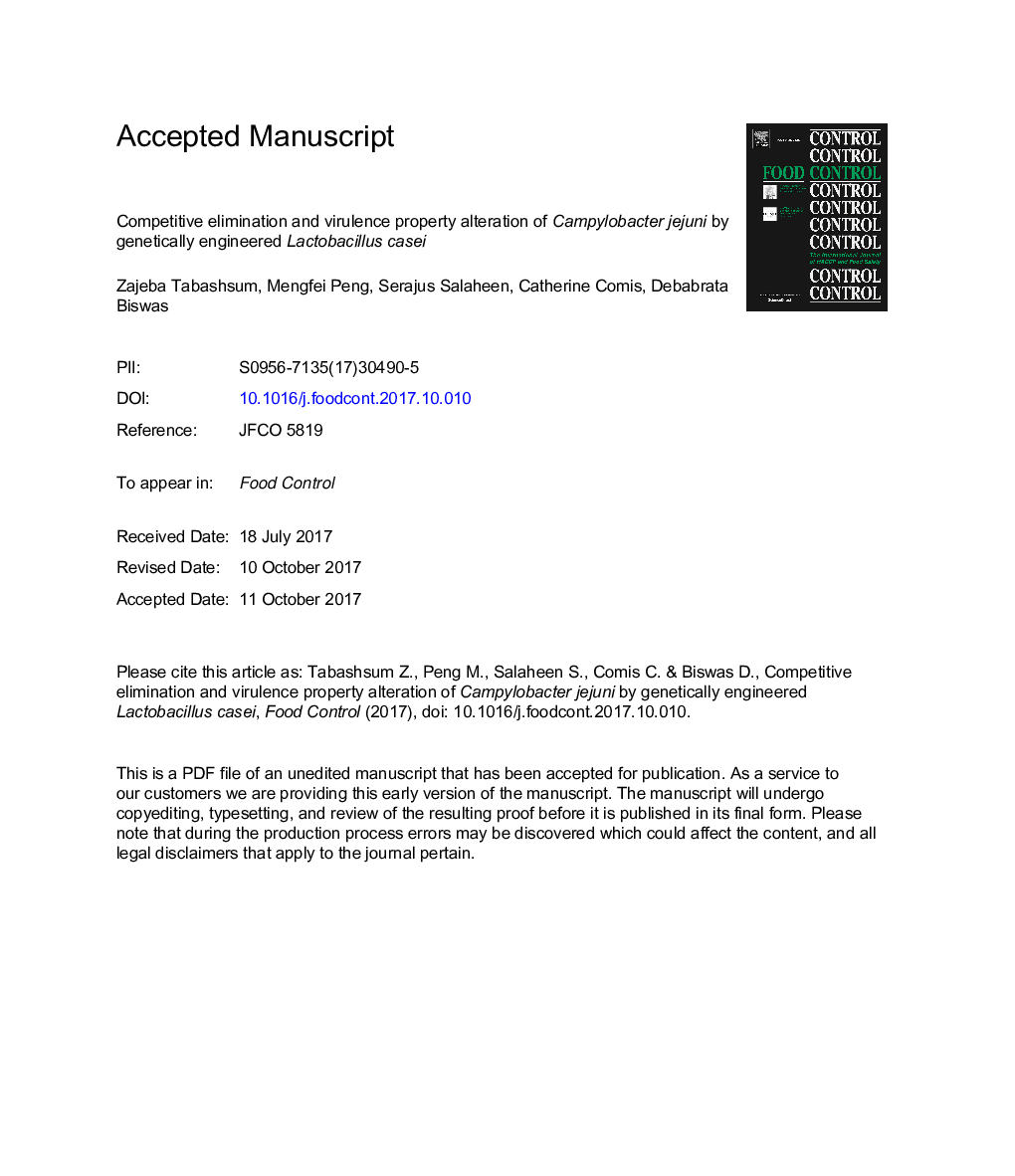| Article ID | Journal | Published Year | Pages | File Type |
|---|---|---|---|---|
| 8888224 | Food Control | 2018 | 34 Pages |
Abstract
Probiotics, prebiotics, or a combination of these two referred to as synbiotics, have emerged as a promising natural and alternative approach to make the sustainable animal farming. Previously, we reported that in the presence of prebiotic like components such as peanut flour, Lactobacillus produced more metabolites and inhibited several enteric pathogens. In this study, we tested a genetically modified lactic acid-producing bacterial strain Lactobacillus casei (LC), that produced large amounts of bioactive compounds including conjugated linoleic acid (CLA), in inhibiting enteric bacterial pathogens and improving host immune systems. The genetically engineered LC strain, LC+mcra (overexpressed mcra gene in LC) effectively eliminated Campylobacter jejuni (CJ) in co-culture condition without any stimulation with prebiotic like components. LC+mcra alone inhibited the growth of CJ completely by 48 h (P < 0.05) similarly the combine effect of LC with prebiotic like component, peanut flour. Cell free culture supernatants (CFCSs) of LC+mcra was also effective in growth reduction of CJ most efficiently (p < 0.05), followed by CFCSs of LC with peanut flour (p < 0.05). In co-culture conditions, LC with peanut flour, LC+mcra and their CFCSs reduced the adherence and invasion ability of CJ to both HD-11 and HeLa cells. Physicochemical properties and gene expressions related to CJ virulence were also altered by CFCSs treatments significantly. These findings suggest, LC+mcra can be an alternative in controlling CJ infection along with other beneficial attributes of LC.
Related Topics
Life Sciences
Agricultural and Biological Sciences
Food Science
Authors
Zajeba Tabashsum, Mengfei Peng, Serajus Salaheen, Catherine Comis, Debabrata Biswas,
